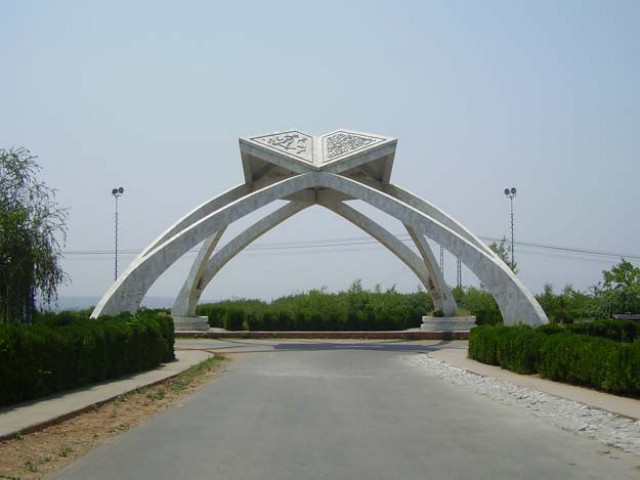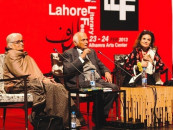Colleges decry high rate of affiliation fees
Some colleges defer introducing BS programme owing to lack of resources

Quaid-i-Azam University. PHOTO: EXPRESS
Government colleges, though, are sweating the high affiliation fees in times of extreme austerity apart from concerns over low enrollment rates since most of the students have already enrolled in the conventional two-year programme.
Quality education: National academy to build capacity of faculty
The Quaid-i-Azam University (QAU) has allowed 10 affiliated government colleges to start offering the four-year Bachelor of Studies programme. The programme aims to replace the old two-year graduate degree programmes of Bachelors of Arts (BA), Bachelors of Science (BSc) and Bachelors of Commerce (BCom).
As per Higher Education Commission (HEC) plans, admissions will not be granted in either the BA or BSc programmes after 2018 while admissions for MA and MSc programmes will be abolished after the academic year 2020 as the programmes are phased out.
However, the affiliated colleges will have to resubmit the affiliation fees to offer courses and colleges complain that the financial strain is significant since it was not too long ago that they had switched affiliations to sign up with QAU.
They said that in 2012, Rs380,000 had been paid to the QAU as affiliation fees for bachelors and masters programmes to switch over from the Punjab University.
The new affiliation fee for BS programmes was worth the same, Rs380,000. However, in addition to the new affiliation fee, colleges must also clear all pending annual renewal fees at a rate of Rs100,000 per year. However, fees accumulated from 2012 amounts to a whopping Rs600,000.
Colleges, thus, were forced to fork out Rs980,000. However, for some government colleges currently running without budgetary allocation from government such as the Islamabad Model College for Girls (IMCG) in Sector I-14/3, Islamabad Model College for Boys (IMCB) Sihala, IMCG in Sector I-8/3 and IMCG Bhara Kahu, the fees is unmanageable and have postponed the four year programmes until next year.
Education officials claimed that the varsity’s affiliation and other fees are significantly higher as compared to other universities such as the Punjab University. Despite paying the high fees, they claimed that colleges in the Islamabad Capital Territory receive extremely poor service in the form of delays in results, discrepancies in results and registration.
CJP directs HEC to submit complete record of private varsities
The affiliation fees for the Punjab University and other public sector universities is Rs200,000 along with Rs10,000 as inspection and visitation fees. The QAU, despite being present in the same city, charges Rs30,000 as inspection and visitation fees along with a renewal fee of Rs100,000 per annum.
For those who have managed to submit the fees and are initiating the four-year programme this year fear that not many students may take an interest since they may have already enrolled in the conventional two-year BA programme announced earlier.
Meanwhile, QAU officials said that the decision for the fees was taken by the affiliation committee and had subsequently been endorsed by the varsity’s Syndicate.
They further said that the affiliation fees are charged per programme offered, not per institute.
Moreover, they explained that the fees being charged for BS affiliations was because the programme came with a whole new set of rules which were quite different from the old BA and MA programmes. This is why, they explained, each new programme requires a separate affiliation and fees.
Published in The Express Tribune, October 1st, 2018.



















COMMENTS
Comments are moderated and generally will be posted if they are on-topic and not abusive.
For more information, please see our Comments FAQ